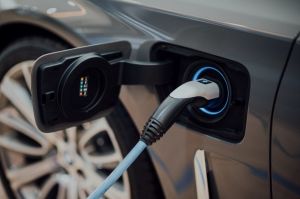Test Owner
The automotive industry in South-East Asia
The automotive industry has seen massive growth worldwide during recent years, due to factors such as the development of electric cars in response to climate change considerations, and growing numbers of people who desire autonomous transport. South-East Asian countries such as Thailand and Malaysia display particular growth, as they have both large markets to sell to and important manufacturing hubs which produce vital car parts for companies all over the world.
Thailand is the major production hub in the region, and as such is both an important market and an important producer. Automotive parts and entire cars that are produced there can be exported all over South-East Asia, and to the world in general. More than half a million people in Thailand are employed in the automotive industry in some capacity, and in 2015 1.9 million cars were produced in the country (with 1.2 million of those being sold abroad, and the rest domestically). As green automotive becomes ever more important in accordance with local laws, the production hubs based in Thailand will need to shift their focus to accommodate this, and the Thai government is eager to assist them in this.
This growth has been difficult to achieve, however. Following suspended production due to lockdowns in 2020, the restarting of production in many South-East Asian factories was slow. Between April and May 2020 in Thailand there was a 130% growth on the number of vehicles manufactured, but even this larger figure still represented almost a 70% drop on the previous year. Nonetheless, as the country has opened up in response to falling cases, the increase in production of car parts in Thailand has been large, and continues to grow.
Source: www.aseanup.com
Software boom in Latin America
Technological advances in Latin America are taking place at an unprecedented rate, and this is most clear in the fintech sector. Fintech is a portmanteau of “financial technology”, and as such refers to software that is used to enable and support financial services. Fintech aimed at small and medium businesses has experienced much greater growth than that aimed at large businesses, and there are multiple factors affecting that.
Brazil in particular is an excellent place for the development of fintech because of the high equity returns enjoyed by its major banks – these can reach up to 20%. Just five of the major banks control some 90% of the money in Brazil, meaning that it is very difficult for new businesses to break in. However, they primarily cater to a wealthy sector of the population, as great proportions of people are not affiliated with a bank in some areas of the country and prefer to use cash. Many small business owners in the region have therefore struggled in the past with finding financial systems that will work for as many clients as possible, and fintechs catering to small business owners have found a lot of work in this area.
One example of a fintech company catering to small businesses is Cora, which is based in Brazil. Having noticed the gap in the market for fintechs that do not only work with wealthy clients, the two co-founders of the company started engaging with customers. Cora is now valued at nearly $30m, and hopes to expand globally.
Source: www.forbes.com
5 UI trends helping to boost revenue
It is obvious that a website’s UI is the key to boosting sales and revenue; even the best products won’t sell as well as they could if your UI interface doesn’t draw customers in. These UI trends, used by the top companies in the world as well as newly-launched enterprises, can help to boost a website’s revenue.
- Colour psychology. It has long been known that the colours we see can affect our decision-making and so boost revenue for businesses; some bold colours (as long as they are well balanced with more subtle shades) can do wonders for a UI.
- This trend was only brought into the mainstream relatively recently, but has quickly become a fixture of many eCommerce websites; chatbots allow for a customer’s concerns or questions to be answered 24/7, and so provide obvious benefits to sales.
- Checkout innovations. Fast checkouts and support for lots of payment methods make purchases easier and encourage customers both to buy products and to return to a site, boosting sales.
- Personalised experiences. Suggesting products to customers based on their previous browsing activities can help to match them with the best products for them, and thus make them more likely to turn to that site again in the future.
- Micro animations. These are (as you might expect) smaller changes to make to a UI than some of the others listed, but can have great effects, as they make a website stand out to customers.
These are five of the most common trends at the moment in UI development, and are used to drive up sales and revenue through their impact on the customer experience.
Source: www.customerthink.com
Many elements of the COVID-19 pandemic have made it abundantly clear that Europe as a continent is facing a severe shortfall in skilled workers; both the people needed to find solutions throughout the pandemic, and the people needed to manufacture those solutions, have been in short supply.
Many workers have, of course, been displaced or lost their former jobs due to the economic issues caused by the past year of lockdowns. This means that there is an annual demand for over 100 000 engineers and technicians in the UK, as well as nearly 80 000 roles that combine engineering knowledge with other skill sets such as computing. This constitutes a massive 17.1% of all the vacancies available in the country, and this statistic is mirrored in many countries across Europe and the EU. New engineering jobs are constantly being created to fill different demands, and yet there are not enough engineers to fill them.
One reason for this may be the gender disparity in engineering jobs. Only about 10% of the workforce is female, with the gender divide taking shape as early as GCSE exams, in which engineering and general STEM subjects are dominated by boys in terms of uptake. When half of the population are less likely to pursue a career in engineering, it is unsurprising that businesses are struggling to find enough workers. Inclusion within the industry is being heavily promoted, however, in an attempt to attract more female engineers.
Another reason may be the partial failure of some educational courses in providing young people with the skills they need to enter the field. Far fewer people undertake apprenticeships today than they did 40 years ago; the university degrees that many do instead can leave graduates ill-equipped for the workplace, as shown by the 2 000 engineering graduates in the UK in 2019 who were unable to find work. Steps have been taken to combat this with the introduction (from 2022) of new post-16 courses called T-Levels, which are specifically designed to provide young people with the transferable skills they will need to enter different sectors, including engineering.
Further information about the specific skill shortages in this industry are available on the Recruitment Employment Confederation’s website, at www.rec.uk.com.
Sources: Recruitment Employment Confederation JobsOutlook report, 2019, and www.jonlee.co.uk
The German automotive industry has been in decline for some years now, but this looked to be about to change in 2021, when the country’s automotive industry association (VDA) predicted a growth of 8% during 2021. However, this forecast was cut to 3% this month, with the association citing problems with sourcing the parts required for building cars, specifically semiconductors.
As well as the reason cited by the VDA, of course, there are more reasons for the automotive industry’s problems in Germany. Declining car sales over the last two years in particular can be attributed to the rising global awareness of climate change, among other factors. Traditional cars rely on petrol and diesel, which has caused friction with climate protesters. In September 2019, an auto show held in Frankfurt was blockaded by a climate group demanding that the automotive industry as a whole be held accountable for their reliance on harmful fossil fuels, and the event was declared a “huge fail” by the former boss of Vauxhall.
It is not only independent groups who support a gradual departure from fossil fuels; the VDA also discussed a possible EU-wide ban on combustion engines, which would begin in 2035. They questioned the logic and efficacy of this, citing the toll that would be taken on jobs and consumer freedom. In a statement, the VDA summed up their view on the subject: “People don’t want bans, they want offers”.
The German automotive industry has therefore been shifting towards the production of electric vehicles, but one of the main obstacles to this is the lack of infrastructure to support it. There are few charging ports in public areas for this type of car, but more are being built to keep up with rising demand for cleaner-energy vehicles. Government subsidies on electric cars are attracting more customers to them, which provides further incentive for the building of infrastructure.
While the German automotive industry is facing problems at the moment, therefore, the increasing demand for electric vehicles, combined with further implementation of the infrastructure necessary to support them, could mean that it will see a resurgence in years to come.
Source: www.europe.autonews.com
Google reports record-breaking profits
Google, as well as other large tech companies such as Microsoft and Apple, has seen massive growth in its quarterly sales as a result of the COVID-19 pandemic. The companies credit the increased amount of time that people have had to spend at home because of multiple lockdowns for their increase in sales – the internet and electronic devices have been one of the main ways for people to stay in contact with one another and keep themselves up to date on developments within the pandemic. Digitalisation has only increased in speed with global lockdowns, and it seems unlikely that all of this will be reversed as the world returns to normal.
In the second quarter of 2021, Google’s parent company Alphabet reported a massive 62% increase on the same quarter in 2020, with a total revenue of £44.5 billion. The majority of this revenue has come from Google’s advertising, which gave the company $50.4 billion – a 70% increase on pre-pandemic figures. This has also driven up stock prices and profits for the company; earnings per share had been estimated at $19.30 each, but at their peak reached $27.26.
Google is not alone in this massive growth. Apple experienced the best fiscal quarter the company has had since its foundation, and Microsoft saw a 21% rise in revenue between the same quarters in 2020 and 2021. These growths have been fuelled at least in part by a huge increase in demand for technology, caused by the shift to remote work and study caused by lockdowns. The three companies now together have a combined market value of $6.4 trillion, which is more than twice their collective value in 2020.
Source: www.guardian.co.uk
The recent floods in western Germany have added more pressure to supply chains that were already struggling from the effects of the COVID pandemic. Multiple events worldwide have contributed to a huge global shortage of microchips and semiconductors, among other components, which have hit the automotive industry harder than most. A recent drought in Taiwan, where many goods that Germany requires are made, has been another factor contributing to the supply shortage. Germany imports 8% of its intermediate products from other countries, meaning that it relies more heavily than countries such as the United States (which imports less than 5% of its intermediate products) on supply chains working effectively. The imports that can be made are much more expensive than usual, as the disruption to production and the decreased numbers of staff caused by the pandemic means that the price of containers used to ship goods from Asia to Europe has multiplied eightfold since last year.
It seems that these shortages may continue for years to come, as the uncertain situation with COVID-19 and the increasing climate-related events occurring globally will undoubtedly impact the supply chain. Germany is taking the initiative to counter this, with Bosch opening a chip-manufacturing plant in Dresden to benefit the automotive industry. Intel is also looking to open a semiconductor factory on the continent, using funding from the EU. These plants will work in conjunction with those based in Asia, where the majority of tech components are currently created. By creating multiple factories, and therefore multiple possible suppliers, across the world, these companies intend to protect themselves and their industries against future events that would otherwise have caused issues for the global supply chain.
Source: www.diplomaticcourier.com
Electric car boom in Sweden
In March 2020, about one in ten new cars bought in Sweden were completely electric, while a further 17% were plug-in hybrid vehicles – this was an increase (from 2019) of 43% for the former, and 107% for the latter. By June of 2021, however, sales of electric cars had increased massively – every second car sold in the country was electric. Sweden now has the largest proportion of electric cars in the entire EU.
There are many reasons as to why more and more consumers are choosing to buy electric cars or plug-in hybrids. Perhaps the primary reason is their cost efficiency – electricity is cheaper than petrol or diesel practically everywhere in the world. As well as the fuel costs, electric cars do not need oil changes or motor maintenance, which further helps the consumer to reduce their expenses. Companies are working to make electric and hybrid vehicles more affordable, and when considering the money the average consumer will save on petrol or diesel, the financial benefits are clear. A growing focus on climate change and the need for mass-scale divestment from fossil fuels is also powering the shift; electric cars emit fewer harmful pollutants, especially when they are charged by solar panels or other forms of renewable energy.
Convenience may also factor into the increasing popularity of electric cars – rather than having to find a petrol station every time you need more fuel, you can simply charge an electric vehicle at home. With technological advances, the time taken to charge a battery, as well as how many miles a charge will last for, is steadily improving. In addition to this, the average electric car can continue driving past 500 000 miles, while a petrol or diesel car can only reach a maximum of about 200 000 miles.
Government incentives to switch to electric cars are common in Europe, where large efforts are being made to reduce fossil fuel emissions. For example, in some places parking is cheaper for electric cars, and they can sometimes drive in bus lanes to skip traffic jams. In the UK, certain low-emission vehicles are eligible for a plug-in grant, aiding the buyer in the running cost of the vehicle.
Electric cars are expected to become cheaper than petrol cars in the next decade, according to some forecasts – Sweden is simply ahead of the game.
Source: www.thedriven.io
The most in-demand jobs in Germany
As Europe’s largest economy, and the world’s fourth largest by GDP, Germany is an extremely attractive place to work. According to recent reports, it is also facing a skills shortage across many sectors, with a projected shortfall of three million workers by 2030. Due to its ageing population, the country needs foreign workers to make up this deficit. For well-qualified professionals, therefore, there are lots of opportunities across different sectors and industries.
Perhaps unsurprisingly, most sought-after workers are those in the IT and software sectors. According to a survey conducted by the Bertelsmann Stiftung, three of the top five positions are in these areas. Software developers and programmers are the most in demand workers, followed by electronics engineers in second place and IT consultants and analysts in fourth place. Other highly desired workers are in the healthcare, sales, and architecture sectors.
The people best placed to get these jobs in Germany are usually university graduates, and preferably those with at least some professional experience in their fields. Fields within engineering, including structural, mechanical, electrical, and automotive engineering, are particularly useful to have a degree in, as they will open up lots of job opportunities. These degrees do not need to have been earned in Germany, however, as long as they are equivalent to German qualifications. The country is open to immigrants and the government has recently passed a law drafted in 2018, which aimed to make the labour market more accessible to non-EU skilled workers.
As well as engineering and related fields, there are also lots of vacancies available in healthcare, teaching, and retail, among other areas. Many of these areas offer internships of a year or more, after which you will progress to a full-time job. There are also other options to complete vocational training if you are not yet a skilled professional, but still want to access the German job market. Dual study programs are available nationwide, and many employers will fund or otherwise aid workers in taking part in these. Other jobs do require you to have already undertaken some training; in the medical field, for example, you can get a license to practise as long as you have a degree that is equivalent to the German medicine qualification.
Further information about the jobs most demanded by German companies is available on www.deutschland.de.
Source: Dekra Arbeitsmarkt Report, 2018
German auto industry emissions scandal
Since the Dieselgate scandal broke in 2015, revealing how Volkswagen in Germany had been illegally manipulating its engines to bypass the German Clean Air Act, the automotive industry in the country has faced a huge loss of public trust and has faced sanctions from the EU, among other public bodies. As of 2020, the company had had to pay over $33 billion USD in criminal fines, as well as penalties, financial settlements, and compensation for those who bought the affected cars.
The manipulation in question aimed to help the cars bypass government regulations on the emissions that vehicles were allowed to produce; although in a test setting, the vehicles appeared to conform to these standards, in a real-world scenario they emitted up to 40x more nitrous oxide. Nearly half a million cars with this illegal bypass were produced and sold in the USA between 2009 and 2015, resulting in a measurable increase in emissions.
As a result of Dieselgate, EU law changed to reflect the new right of the European Commission to check whether cars are conforming to the legal emission standards, and to recall them if necessary, as well as fining the company. These fines can be up to €30 000 for each offending vehicle.
As of July 2021, the company is facing yet another set of fines, this time from the European Commission. These total €875 million, on the basis of the company having broken EU antitrust rules by the use of their bypass. This is the first time that antitrust violations have been prosecuted legally, making it somewhat ambiguous – VW is considering whether to appeal the decision on legal terms, and the company has until mid-September to make its final decision.
It was not only Volkswagen that was affected by Dieselgate – increasing regulations on diesel-powered vehicles and new engineering requirements made them less attractive both to manufacturers and to consumers; this has contributed to the increasing sales of electric cars.
Source: www.dw.com














